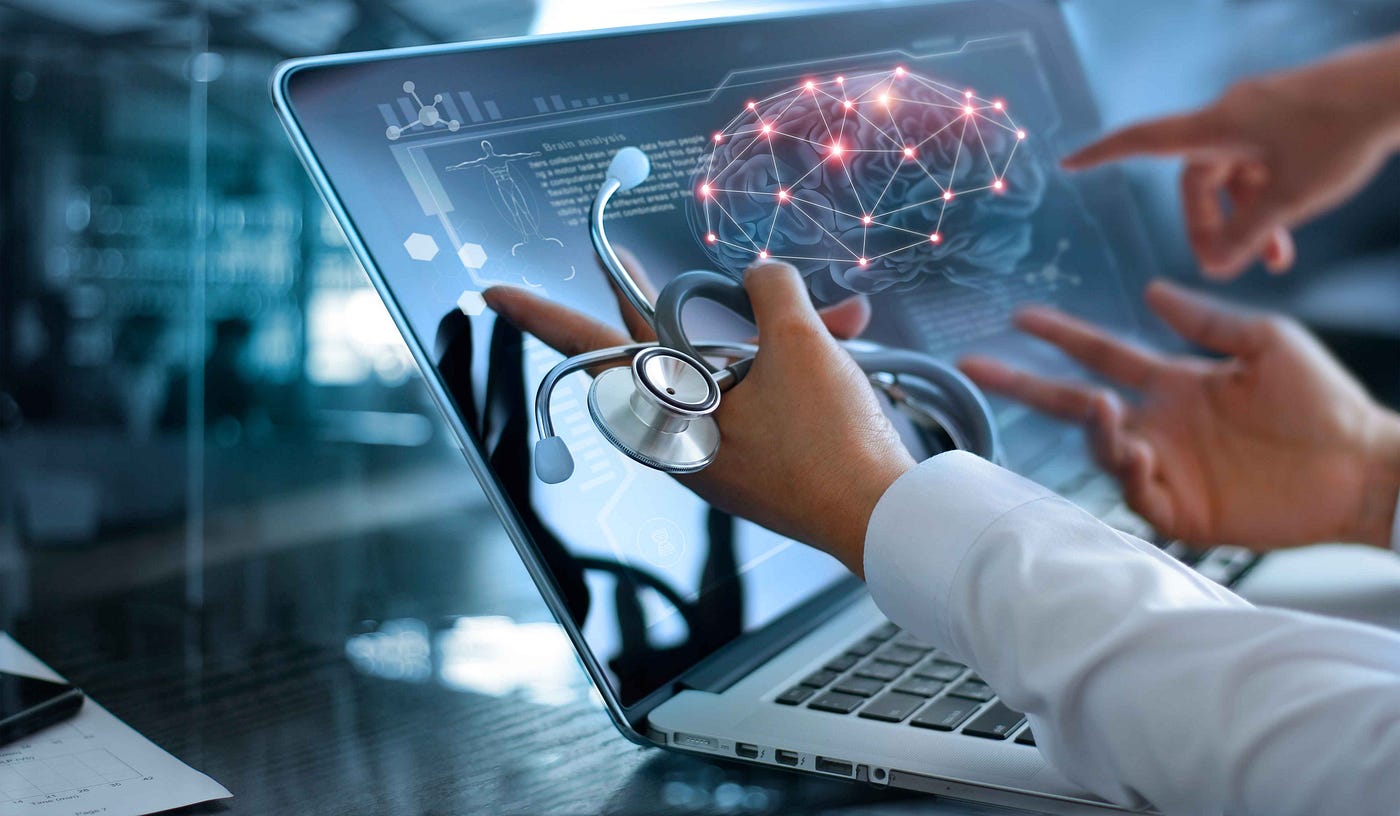The growing presence of technology in healthcare has changed the way care is delivered and managed. Especially, healthcare software development, which has enabled healthcare providers to streamline their operations, improve patient outcomes, and ensure data-driven decision-making. Indeed, different technology solutions are changing the future of healthcare, such as telehealth platforms, medical billing software, hospital management software, remote patient monitoring software, e-prescribing software, and EHR software. In this blog, we will discuss trends in electronic healthcare record systems (EHR) that are shaping the industry. We will begin with a brief introduction to EHR and its benefits. Then, we will discuss the trends, so let’s start!
What are EHR Systems?
EHR, or Electronic Health Record, systems are digital platforms used to store, manage, and access patient health information in real-time. These systems are capable of storing comprehensive medical records, including patient history, diagnoses, treatment plans, medications, lab results, and imaging reports. Furthermore, EHRs can enhance the quality of care by providing quick access to data, minimizing errors, and facilitating seamless coordination across departments and providers.
Additionally, EHRs ensure compliance by securely storing patient healthcare data and offer advanced features such as alerts, reminders, and analytics, which help enhance patient outcomes. You can approach any EHR software development company to help leverage the benefits of EHR systems, as mentioned below:
Benefits of EHR Systems
Electronic Health Records (EHR) systems are highly vital in gathering and securing patient data. Thus, this helps healthcare providers store patient data more securely, ensuring compliance with data protection regulations as well. This healthcare software development has revolutionized healthcare. Some of its top benefits are given below:
- Enhanced Patient Care
EHR systems enable physicians to access patient data quickly, maintaining continuity of care. This is crucial for healthcare providers to make well-informed decisions, helping care facilities prevent test duplication and minimize the risk of medical errors.
- Improved Care Coordination
Continuous coordination across departments in healthcare facilities is required, and EHRs have made this possible. It makes it easier to share patient data across departments within and outside the facility. This enhances the coordination among primary healthcare providers, specialists, laboratories, and pharmacies, ensuring that all parties involved in patient care are aligned.
- Increased Productivity
EHRs reduce administrative work by automating tasks like charting, prescription writing, and documentation. This also enables the healthcare teams to focus more on what matters, which is providing care to the patients.
- Increased Patient Engagement
Many EHR platforms include patient portals, which enable patients to access their health records, view test results, and communicate with their healthcare providers. This automatically helps increase transparency, allowing the patients to make informed decisions and actively participate in their healthcare journey.
- Accuracy and Safety
EHRs have proven to be vital in enhancing the accuracy of healthcare systems, as features such as e-prescribing, drug interaction alerts, and clinical decision support reduce medication errors and increase patient safety.
6. Regulatory Compliance
EHR systems ensure compliance with data protection regulations, such as HIPAA and GDPR, by securely safeguarding the data. They can include features like MFA, audit trails, automatic log-off, role-based access, user authentication, and data encryption.
7. Data-Driven Decisions
EHR systems contain analytics tools that allow healthcare providers to track performance metrics, identify trends, and enhance patient outcomes.
8. E-Prescribing
EHRs enable healthcare providers to send prescriptions electronically to pharmacies, eliminating the need for patients to submit their prescriptions physically. E-prescribing enhances patient safety, maintains accurate records of patient medication, reduces errors, and streamlines the prescription fulfillment process.
Now that you are familiar with the benefits of EHR, it’s time to explore the trends that will persist and continue to advance the application of this system.
Trends in Electronic Health Record (EHR) Systems
EHR systems, due to their numerous benefits, will be highly valued by healthcare providers. The integration of technologies such as AI/ML, robotics, and blockchain will further enhance their proficiency. In particular, strong AI governance in healthcare practices—such as those advocated by Onymos to ensure trustworthy data-driven systems—must underpin the adoption of these advanced EHR technologies. So, some of the key trends that any EHR software development company should follow are given below:
- Artificial Intelligence (AI) & Machine Learning (ML)
Indeed, AI is common due to its advanced capabilities, including automation and predictive analytics. One of the biggest trends in EHR development will be the integration of AI, particularly AI systems that can learn and become increasingly effective in enhancing diagnostic accuracy through predictive analytics, as well as help healthcare providers in efficient data analysis, enabling them to create personalized care plans.
- Telemedicine
Telemedicine in EHR systems helps healthcare providers conduct virtual consultations.
This also helps keep all interactions documented and secure, allowing users to access them when needed. It streamlines workflows, enhances care accessibility, and ensures continuity of care, supporting efficient decision-making.
- Remote Patient Monitoring (RPM)
The integration of wearables in the EHR system is a new trend that allows real-time health data (heart rate, activity levels, and sleep patterns) to flow directly to patient medical health records. This provides doctors with a comprehensive picture of a patient’s health. The EHRs also facilitate monitoring, early diagnosis, and personalized treatment, enabling doctors to make more informed choices and helping patients make more informed decisions regarding their health.
- Robotics & Automation
Robotics can be integrated into EHR systems to enhance the efficiency and accuracy of healthcare. Furthermore, robotic process automation (RPA) can help automate repetitive tasks, such as scheduling, billing, and data entry. The automation tools can update patient records in real time and detect abnormal results, which helps in making informed and efficient decisions. Another interesting use of EHR and robotics together is that robots in labs and pharmacies can also sync with EHRs to ensure instant updates. This integration enables efficient workflows and enhanced compliance, ultimately improving care quality.
- Blockchain
Blockchain technology integrated with EHR systems adds a layer of security and transparency. By using a tamper-proof and decentralized ledger, this technology ensures that every medical record is securely encrypted and cannot be altered without proper authorization. This helps safeguard sensitive patient information and enables secure data exchange between healthcare providers. It also gives patients more control over their data by granting or restricting access to it. In addition to reducing fraud risks, it ensures data integrity via time-stamped and verifiable transactions.
- Mobile First Approach
One of the most critical trends in EHR healthcare software development is the development of EHRs that can operate smoothly across various screens. This enhances flexibility and remote access by enabling physicians to view patients’ records on the go and respond to emergencies efficiently. It can also help patients by improving their access and allowing them to view their records, test results, and appointments via user-friendly apps.
It is vital to put ease of use at the center of EHR design for the development of connected, responsive, and efficient healthcare systems.
Conclusion
The technological innovations in EMR and EHR software development are paving the way toward more innovative, secure, and efficient healthcare. Helping healthcare providers offer personalized care, improve patient outcomes, and enhance patient experiences. In a nutshell, these advancements not only streamline administrative and clinical workflows but also enable healthcare professionals to provide secure, data-driven care, saving them time and resources and allowing them to focus on areas of improvement. Moreover, the integration of technologies such as AI/ML, AR/VR, and IoT is making healthcare solutions more innovative and effective, thereby changing the course of this industry, where healthcare providers will increasingly depend on digital tools to provide more accurate care.
If you are looking to build an EHR, consider consulting a healthcare software development company for assistance.
Stay in touch to get more updates & news on Tribune!



